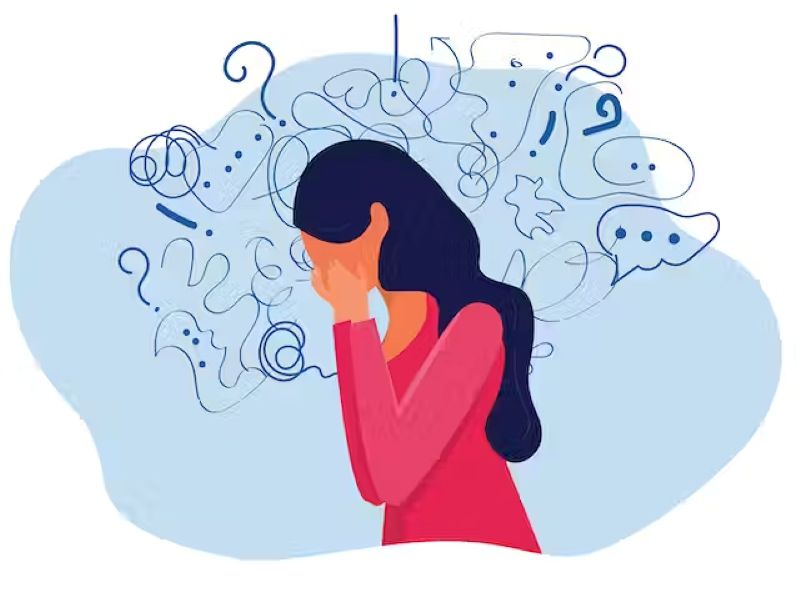A Guide to ADHD Treatments and Strategies
Attention Deficit Hyperactivity Disorder (ADHD) affects millions, shaping how people focus, process information, and manage activity levels. Whether you or a loved one is navigating ADHD, understanding the condition and available treatments can provide clarity and hope. This guide dives into ADHD symptoms, medication options, and complementary approaches to help you make informed decisions.
What Is ADHD?
ADHD manifests through inattention, impulsivity, and hyperactivity. These traits may show up differently in each person, with some experiencing difficulty concentrating and others battling restlessness. ADHD is divided into three types:
- Inattentive Type: Symptoms include forgetfulness, disorganization, and difficulty following through on tasks.
- Hyperactive-Impulsive Type: Includes constant movement, impulsive decisions, and challenges sitting still.
- Combined Type: A mix of inattentive and hyperactive-impulsive behaviors.
Recognizing these patterns is a crucial step toward identifying effective management strategies.
ADHD Treatment: Medication and Beyond
Medication is one of the most effective tools for managing ADHD. However, it’s not a stand-alone solution. Combining medication with therapy, lifestyle adjustments, and educational support often yields the best outcomes.
Stimulant Medications
Stimulants are the most commonly prescribed ADHD medications. They increase levels of dopamine and norepinephrine in the brain, helping improve focus and reduce impulsivity. Examples include:
- Methylphenidate (Ritalin, Concerta): Commonly used to boost attention.
- Amphetamines (Adderall, Vyvanse): Effective for managing both hyperactivity and inattention.
These medications act quickly, but side effects like appetite loss, difficulty sleeping, and mood changes may occur. Regular monitoring ensures the medication remains effective while minimizing side effects.
Non-Stimulant Medications
For individuals who don’t respond well to stimulants or experience significant side effects, non-stimulants offer an alternative. These medications include:
- Atomoxetine (Strattera): Helps regulate attention and impulse control.
- Guanfacine (Intuniv) and Clonidine (Kapvay): Often used to improve emotional regulation and reduce hyperactivity.
Non-stimulants typically take longer to work but can provide steady, reliable symptom management.
Local ADHD Resources in Albuquerque
For those seeking ADHD treatment in Albuquerque, local resources can provide additional support. Schools in the area often work with parents to create Individualized Education Programs (IEPs) or 504 Plans. Additionally, local ADHD support groups and therapy practices, like Talking Circles Therapy, specialize in creating effective strategies to help children and adults thrive. We can help you build a comprehensive approach tailored to your needs.
Contact Talking Circles Today for More Information
The Benefits of ADHD Medication
Medication can be life-changing for many individuals with ADHD. Key benefits include:
- Enhanced Focus: Tasks become easier to manage as distractions fade.
- Improved Emotional Regulation: Reduced frustration and emotional swings.
- Better Impulse Control: Minimized impulsive behaviors and interruptions.
- Greater Productivity: Support for academic, professional, and personal achievements.
Medication serves as a foundation, helping individuals better engage with complementary treatments like therapy and coaching.
Why Therapy Matters
ADHD medication addresses symptoms, but therapy targets the underlying challenges that come with the condition. Counseling helps develop practical tools and emotional resilience. Core areas of focus include:
- Time Management Skills: Learn to set priorities and manage schedules effectively.
- Behavioral Therapy: Address disruptive habits and reinforce positive behaviors.
- Social Skills Training: Strengthen relationships through better communication and emotional awareness.
In my experience as a therapist, combining medication with counseling often leads to significant breakthroughs. It’s about creating a space where you feel seen and supported, uncovering the strengths already within you.
You can get assistance with Medication Management Services
Holistic Approaches to ADHD Management
Medication is just one piece of the puzzle. Many individuals benefit from integrating holistic strategies into their treatment plans:
- Diet and Nutrition: A balanced diet rich in protein, healthy fats, and complex carbohydrates supports brain health. Adding omega-3 fatty acids has also been shown to support cognitive function.
- Regular Exercise: Activities like yoga, swimming, or aerobic workouts boost dopamine and improve focus.
- Mindfulness Practices: Meditation, guided breathing exercises, and body scans can calm the mind and reduce stress.
- Educational Support: Collaborate with teachers to ensure academic accommodations that meet your needs. Encourage consistent communication between educators and parents for optimal outcomes.
- Parent Training Programs: Equip parents with tools to guide children through challenges effectively, creating a stable and supportive home environment.
Real-Life Success Stories
One of my clients, a teenager named Alex, struggled with hyperactivity and focus issues at school. After combining a low dose of stimulant medication with mindfulness exercises and academic accommodations, his grades improved, and his confidence soared. Alex’s story is just one example of how ADHD treatment is a dynamic process that can empower individuals to achieve their goals.
Addressing Common Concerns About ADHD Medication
Are there risks with ADHD medication? Yes, potential side effects include appetite changes, sleep disruptions, and mood shifts. However, these can often be managed with dosage adjustments and regular follow-ups.
What if medication isn’t enough? That’s where therapy, support systems, and lifestyle changes come in. ADHD management is most effective when approached holistically.
Approaches like EMDR Therapy can help ADHD patients with control and focus.
FAQs Answered About ADHD
- How do I talk to my doctor about ADHD medication? Prepare a list of your symptoms and concerns. Be open about your experiences, and ask specific questions about medication options and side effects.
- What tools help track ADHD symptoms? Apps like ADHD Organizer or simple journaling can help monitor patterns, making it easier to adjust treatment plans effectively.
- Can adults develop ADHD later in life? ADHD is typically present from childhood, but many adults are diagnosed later due to increasing responsibilities or unrecognized symptoms.
- How can parents advocate for children with ADHD in school? Work with teachers to create an IEP or 504 Plan. Stay engaged in regular communication to ensure the plan meets your child’s evolving needs.
Start The Path of Support
Managing ADHD is a journey, but it’s one filled with opportunity. By combining medication, therapy, and lifestyle strategies, you can take meaningful steps toward balance and growth. At Talking Circles Therapy, we’re here to guide you—providing tools, compassion, and a belief in your ability to thrive.
Ready to Take the First Step?
Contact Talking Circles Therapy today to explore ADHD treatment options that fit your needs. Let’s work together to create a plan that empowers you or your loved one to thrive.
Links and Resources
Here are more sources you can read about ADHD Counseling and ADHD Medication
- What is Medication Management: A Complete Guide
- Integrating Medication and Therapy and Doing it Mindfully
- The Truth About Medication Management and Why Do I Need It?
- Combination Therapy Appears More Effective for ADHD in Children ➡️
- Combining Medications Shows Positive Results in ADHD Patients ➡️
- How to Treat ADHD with Medication, Therapy, Food, and Coaching ➡️




